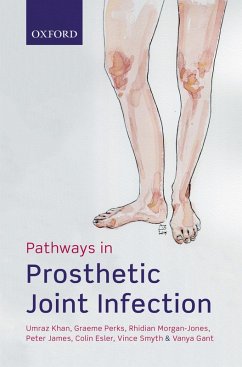The incidence of developing infection in prosthetic joints remains low after primary arthroplasty, but owing to the growing success of joint replacement surgery as a procedure to alleviate pain and improve mobility, infection numbers are increasing. The impact on the patient is immense, and surgical options are challenging. Prevention and reducing the incidence is the key to addressing this problem. Pathways in Prosthetic Joint Infection covers the most common incidences where the risk of PJI is elevated (such as following revision arthroplasty), and indicates suitable approaches to aid the improvement of outcomes. Featuring clearly-illustrated clinical cases on the typical presentation of established and latent infections, the microbiology profiles, assessment, and definitive management are all highlighted. Taking a team-based approach that includes the ortho-plastic surgery team, physiotherapists, and microbiologists, this new book provides a concise summary of the current literature and an essential overview of the management options for those with PJI. Endorsed by the Royal College of Surgeons, BAPRAS, The Vascular Society, and BASK, Pathways in Prosthetic Joint Infection is an indispensable title for all those working with patients who may face PJI.
Dieser Download kann aus rechtlichen Gründen nur mit Rechnungsadresse in A, B, BG, CY, CZ, D, DK, EW, E, FIN, F, GR, HR, H, IRL, I, LT, L, LR, M, NL, PL, P, R, S, SLO, SK ausgeliefert werden.


